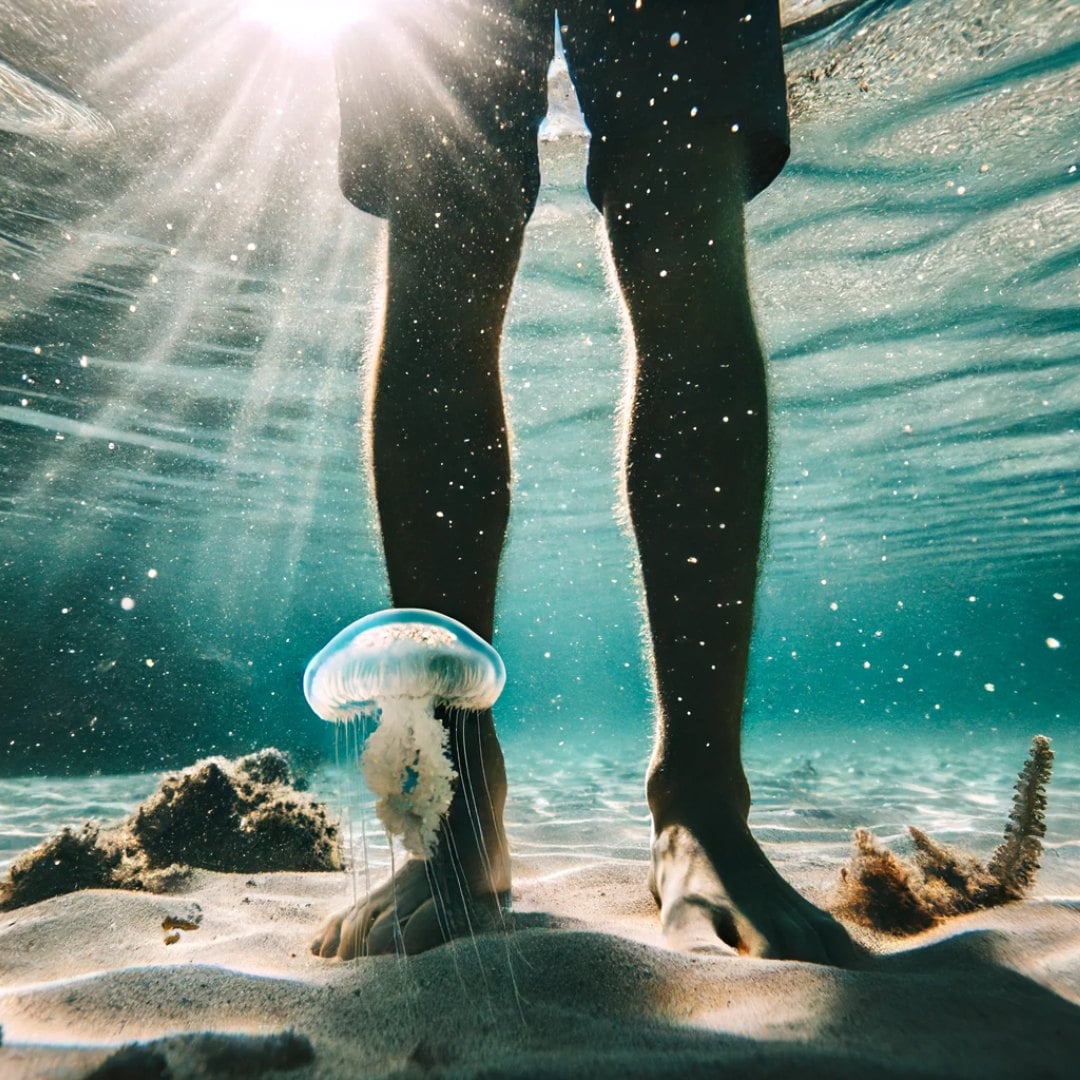Whether you’re visiting your favorite local beach or exploring a new one on vacation, there’s one thing to be mindful of: jellyfish. These fascinating creatures are crucial to the ocean ecosystem, but they can also deliver an unwelcome surprise if you’re not careful. Here’s what you need to know about jellyfish, their role in the sea, and what to do if you get stung.
Understanding Jellyfish: The Ocean’s Drifters
Jellyfish have been drifting through the oceans for millions of years. They come in various shapes, sizes, and colors, often resembling floating, pulsating blobs. Despite their simple appearance, jellyfish are quite complex. They belong to the phylum Cnidaria, which also includes corals and sea anemones.
Jellyfish play a crucial role in the marine food web. They help control the population of plankton and small fish by preying on them, and in turn, they serve as food for larger marine animals like sea turtles. Some species even contribute to the nutrient cycle by breaking down and recycling organic material in the ocean.
Why and When Jellyfish Swarm
Jellyfish swarms, or blooms, can occur for several reasons. Environmental factors such as water temperature, salinity, and the availability of food sources can influence jellyfish populations. Warmer waters and increased nutrients from agricultural runoff or other sources can create ideal conditions for jellyfish to reproduce rapidly.
You’re more likely to encounter jellyfish during the warmer months, especially in late summer. In the Gulf of Mexico and along the Atlantic and Pacific coasts of the United States, jellyfish blooms often appear between May and September. However, jellyfish can be present year-round, especially in warmer climates like Florida. Always keep an eye on local beach reports and heed any warnings about jellyfish in the area.
Staying Safe: Tips for Avoiding Jellyfish Stings
- Look for Warnings: Many beaches post signs or flags to alert visitors to the presence of jellyfish. Pay attention to these warnings.
- Wear Protection: Consider wearing a wetsuit or a rash guard, especially if you’re swimming in areas known for jellyfish.
- Avoid Touching: Never touch a jellyfish, even if it appears to be dead. Jellyfish can still sting after they die.
What to Do If You Get Stung
Despite your best efforts, jellyfish stings can happen. Here’s what to do if you or someone else gets stung:
- Get Out of the Water: Move to dry land to prevent further stings.
- Rinse with Vinegar: Rinse the affected area with vinegar (acetic acid) to neutralize the stinging cells. Avoid using freshwater, which can make the sting worse.
- Remove Tentacles: Use tweezers or the edge of a credit card to carefully remove any tentacles still attached to the skin. Wear gloves or use a cloth to protect your hands.
- Soak in Hot Water: Soak the affected area in hot water (not scalding) for 20 to 45 minutes. The heat helps alleviate pain and inactivate toxins.
- Pain Relief: Take over-the-counter pain relievers like ibuprofen or acetaminophen to help with pain and inflammation.
When to Seek Medical Help
Most jellyfish stings are mild and can be treated at home. However, seek medical attention if you experience:
- Difficulty breathing
- Chest pain
- Severe pain that doesn't improve with home treatment
- A large area of your body is affected
- Signs of an allergic reaction, such as swelling or hives
Embrace the Ocean Safely
Jellyfish are an integral part of the ocean's ecosystem, and with a little knowledge and caution, you can enjoy the beach safely. Stay informed about local beach conditions, respect the ocean’s creatures, and you’ll have a fantastic time by the sea.
Happy beach adventures, and stay safe out there!
James Robbins is a true Floridian, born and raised with a passion for everything beach-related. As the owner of Cypress Junction Gifts & Decor, he loves bringing the coastal vibe to life with his unique beach-themed finds. James’s favorite place to unwind is Navarre Beach, FL, where he draws endless inspiration for his shop. When he's not busy at the shop, you'll find him exploring new beach spots and soaking up the seaside charm.
#BeachDay #BeachDecor #BeachGifts #BeachLife #BeachSafety #BeachShop #BeachTips #BeachVacation #CoastalLiving #CoastalVibes #FloridaBeaches #JellyfishAwareness #NauticalDecor #NavarreBeach #OceanEcosystem #OceanLovers #SeaLife #SeasideAdventure #SeasideStyle #SummerAtTheBeach
